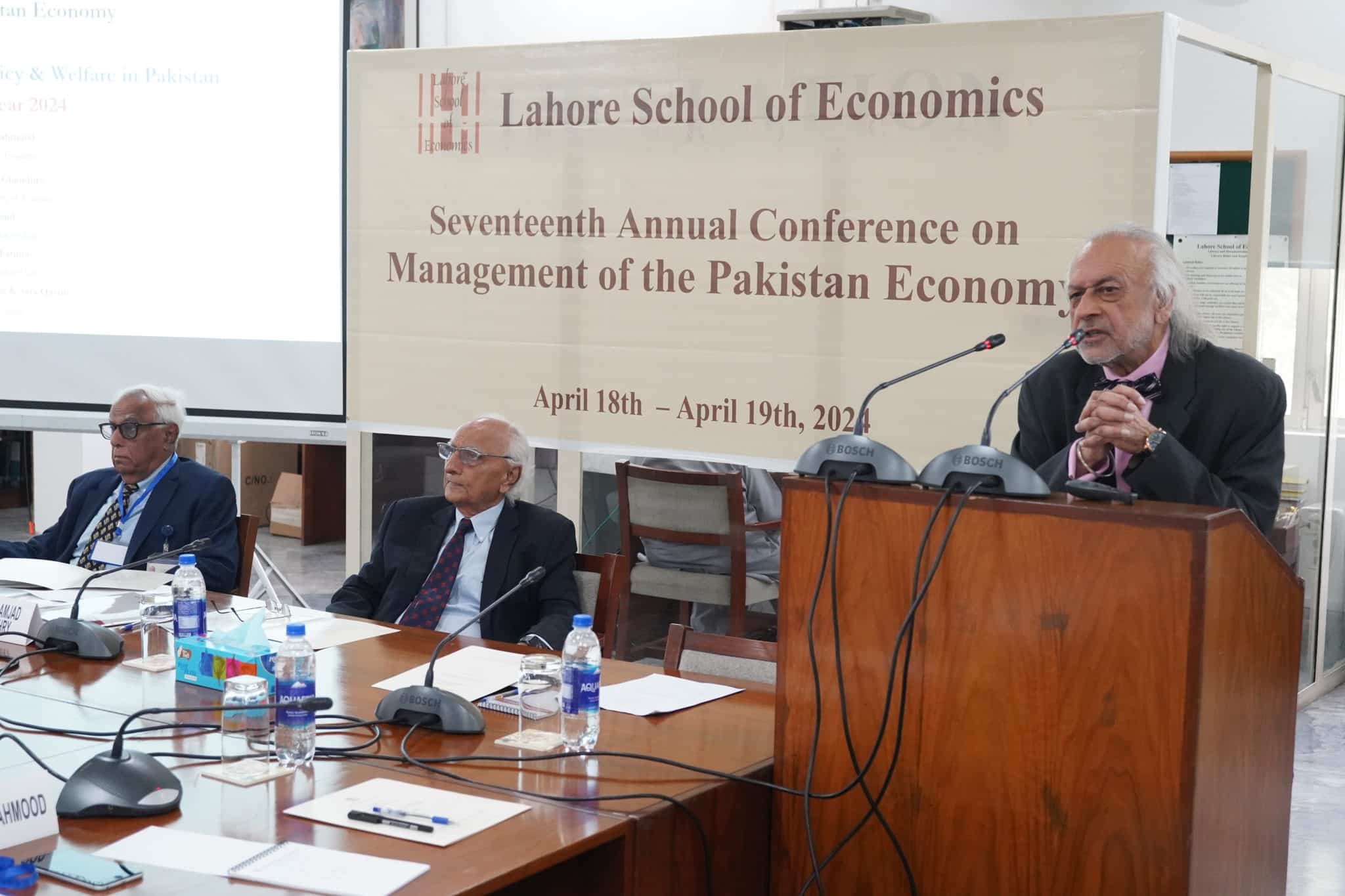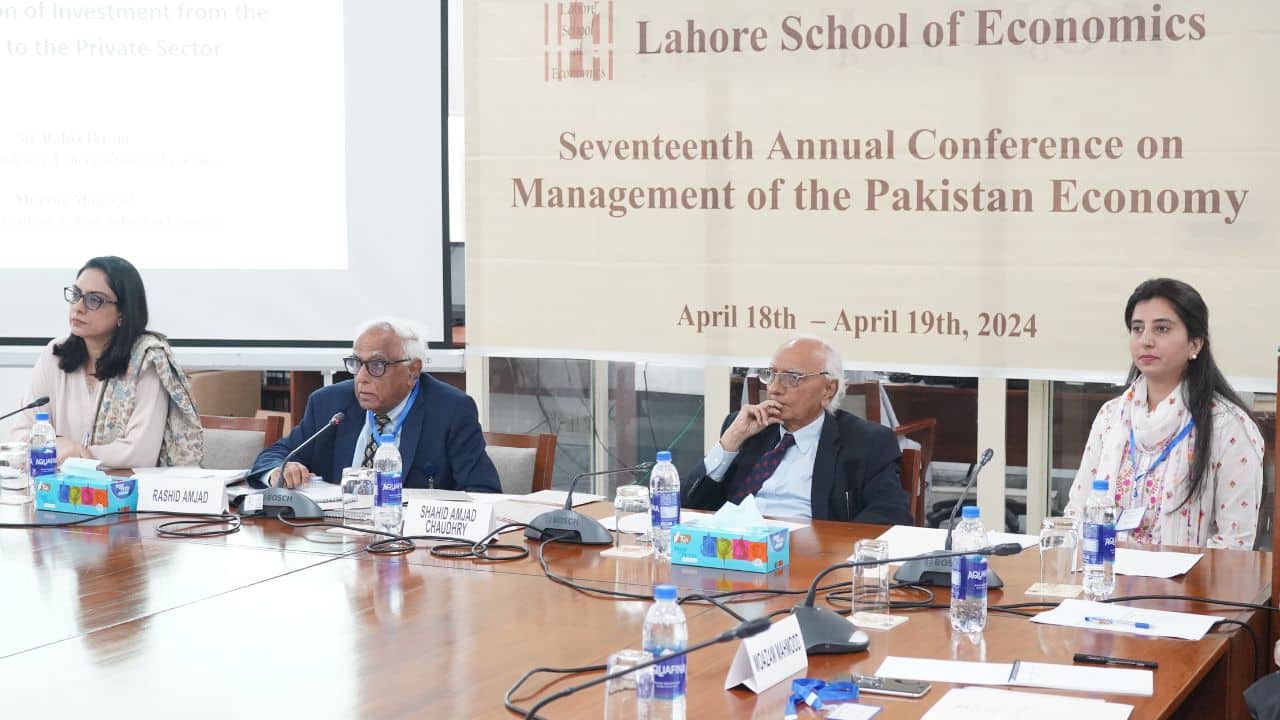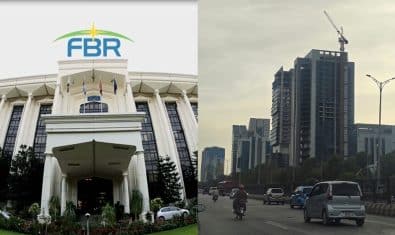The Lahore School of Economics has held its prestigious Annual Conference on the Management of the Pakistan Economy, on April 18-19, 2024, at the Burki campus in Lahore. This significant event brought together leading economists, policymakers, and academics to address the critical challenges facing Pakistan’s economy and to propose viable solutions for sustainable growth.
Dr. Shahid Amjad Chaudhry, the Rector of the Lahore School of Economics, inaugurated the conference by emphasizing the impactful insights derived from 17 research papers presented during this two-day forum.

Dr. Moazam Mahmood, Seemab Sajjid and Amna Noor Fatima presented evidence that the Pakistani economy will grow at a rate of 2.3% in FY 2024 and showed that a combination of this low growth and high inflation will significantly increase poverty this year and in the coming years. They then showed that approximately 10% of taxes would have to be spent on transfers to lower-income households to eliminate this poverty and that this would become larger over the coming years which implies that there must be a significant increase in transfers to households this year, through programs like the Benazir Income Support Program) and in the coming years to address poverty in Pakistan. Pakistan’s economy was projected to grow at 2.3% over FY2024.
Dr. Naved Hamid of the Lahore School of Economics and Dr. Murtaza Syed of the Asian Infrastructure Investment Bank discussed how high interest rates are necessary to combat inflation. They addressed common arguments against it and said that even if inflation was a result of supply-side factors and if government borrowing was relatively less responsive to high-interest rates, one of the most important ways to curtail inflation is still through interest rates. They also discussed that interest rate changes will be critically influenced by the amount of the fiscal deficit and the level of international commodity prices.
Dr. Rashid Amjad and Almazia Shahzad of the Lahore School discussed how the stop-go cycle of economic growth in Pakistan is caused by unsustainable fiscal deficits coupled with foreign borrowing. They then proposed that the only way to achieve growth and stabilization in Pakistan was to reverse the roles of the federal and provincial governments. The federal government should concentrate on meeting the external financing gap, accelerate economic reforms, and manage the fiscal deficit while the provinces should engine for growth and job generation. He said that the provinces to incorporate growth and job generation targets into their annual development plans and also engage in private public partnernships to increase productivity and growth.
Dr. Azam Chaudhry, Gul Andaman and Aymen Junaid discussed how the most binding constraint in Pakistan was stagnant exports and presented a proposal for an export-led industrial policy. In particular, they talked about policy prescriptions like providing more credit to exporters, using Pakistan’s trade and investment officers to promote products and reducing import tariffs on intermediate goods used by exporters. They then provided a template for identifying high value-added export goods for future exports.
Dr. Mujtaba Piracha and Dr. Muhammad Irfan of the Government of Pakistan discussed how Pakistan played a key role in the They explained how the WTO works and how Pakistan can use the forum to work in the country’s favor keeping in mind Pakistan’s macroeconomic situation. They discussed how to WTO framework to stimulate investment and transfer of technology from abroad to stimulate growth and how research and stakeholder are essential to trade negotiations.
Dr. Theresa Chaudhry and Dr. Nida Jamil discussed the role of trade and trade policy on CO2 emissions in the Pakistani textile sector and the possibility of transition to renewable energy sources solar energy.





















